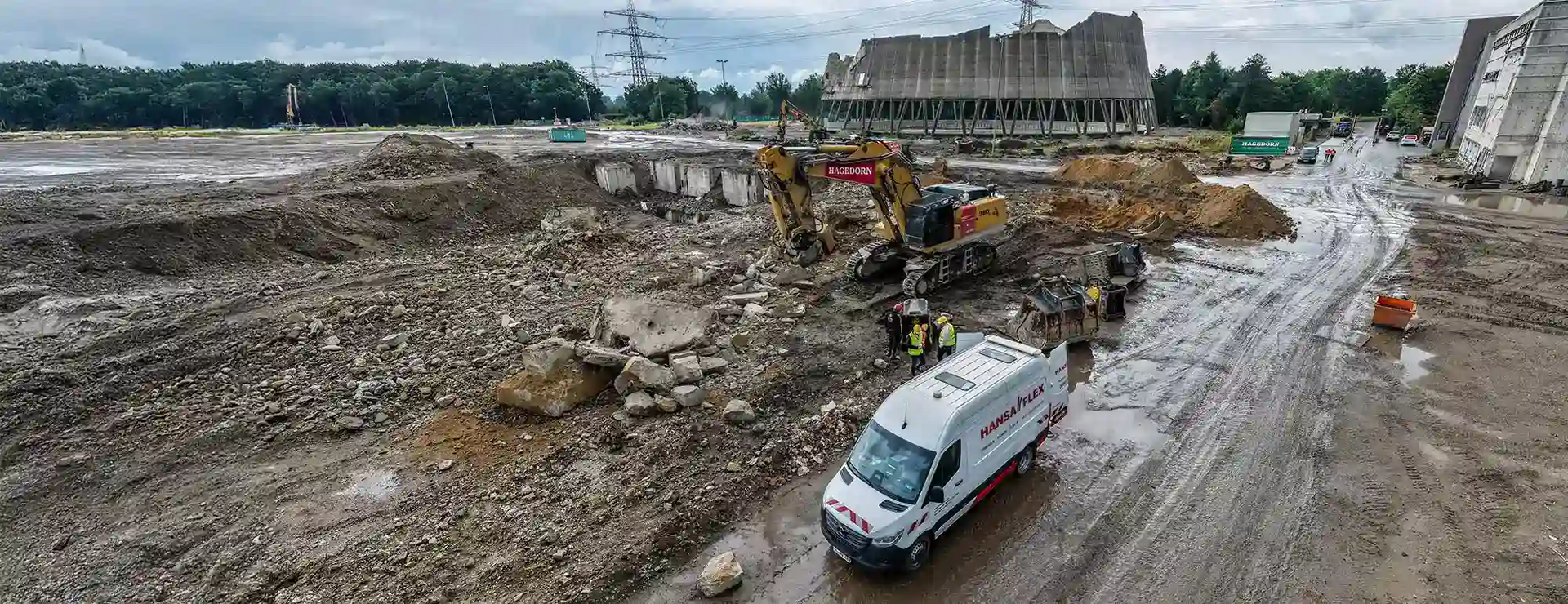Solid particles, water or chemical changes in the oil cause damage, for example due to increased mechanical wear, as they scratch sensitive surfaces in pumps, valves or cylinders. This results in time-consuming and costly repairs and frequent, preventative oil changes. How can machine operators counteract this?
Why contaminated oil jeopardises your machines
Whether from the outset or gradually through absorbed ambient moisture: water in the oil favours the formation of cavitation, causes corrosion on metal parts and accelerates the oxidation of the oil. This leads to the formation of sludge and acids, which attack seals and metal components and bring the machine to a standstill over time.
The performance of the system also suffers from contaminated oil. Changing viscosity impairs lubrication, which leads to higher friction and inefficient power transmission. As a result, the components work inefficiently, pressure losses occur and the controllability of the system becomes more difficult.
Field test: Can adsorber filters help with bypass filtration?
Adsorber filters are an efficient way of removing impurities from hydraulic oil and maintaining its quality in the long term. They offer significant advantages, especially in combination with bypass filtration. To investigate the effectiveness of this system, a practical test was carried out with a SANY SRSC 45 E5 reach stacker. The test system contained 900 litres of hydraulic oil (Sinopec 46), which was filtered through an adsorber filter system with a 10 µm glass fibre filter. The initial measured values showed a water content of 89 ppm and an oil purity class of 18/16/12.
Early successes in the field test:
Improvements after 150 operating hours (3 months)
After the first 150 operating hours, the water content fell by 47% to 42 ppm, while the oil purity class remained stable at 19/16/13. The filter saturation was only 20 %, which indicates a long service life for the filter.
Long-term effect:
Results after 630 operating hours (9 months, including winter months)
After a longer test phase, the filtration continued to have a positive effect. The water content remained below the initial value at 64 ppm, and the oil cleanliness class did not change. The filter saturation increased to 70 % and a total of 700 ml of water was absorbed by the absorber. Even after 630 operating hours, no oil change was required. By using the adsorber filter, the oil quality could be kept at a consistently high level. The filter was only changed after maximum water absorption.
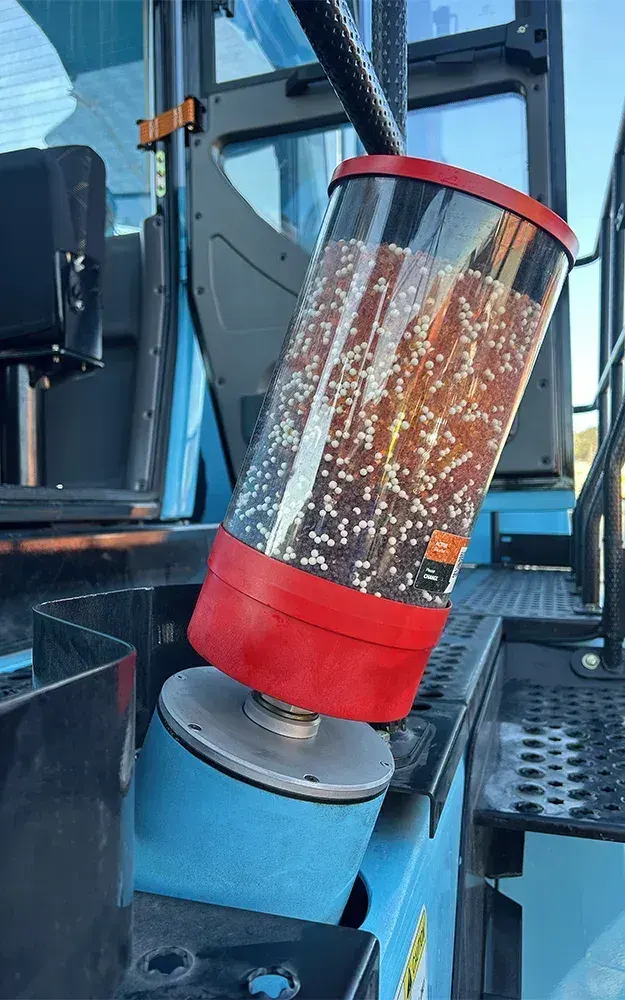
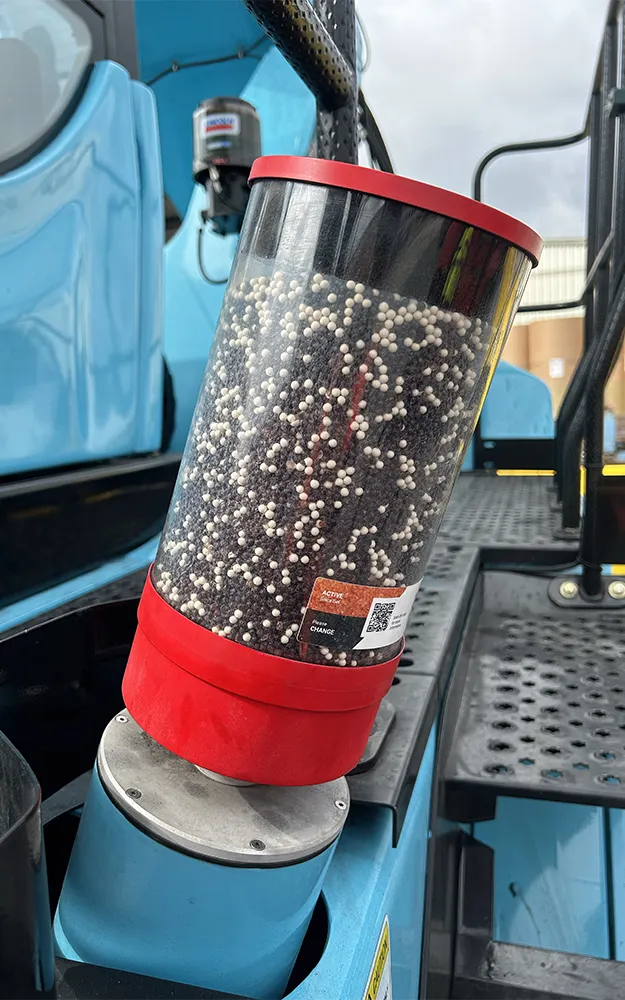
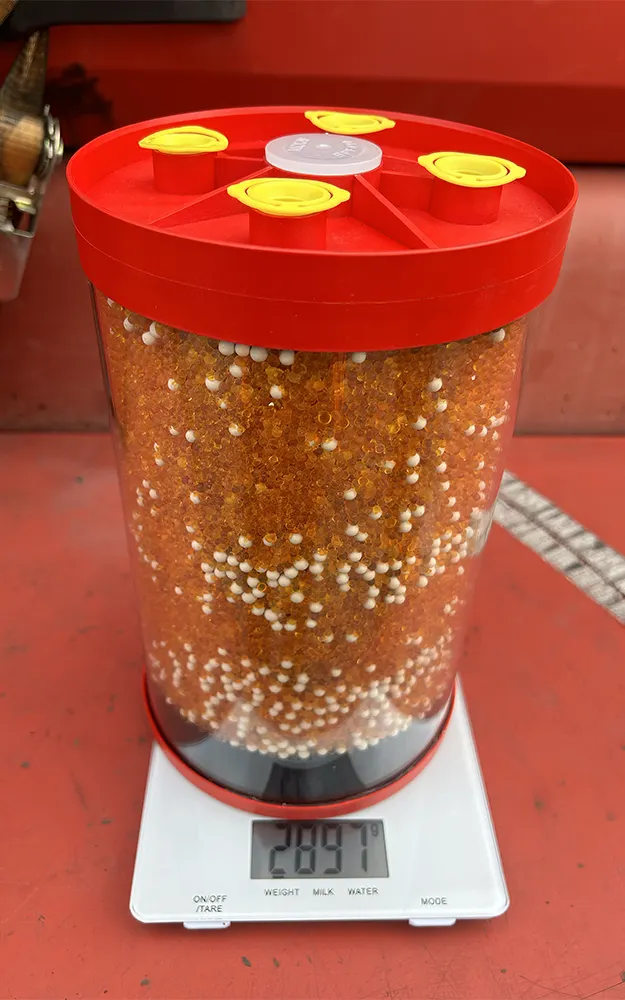
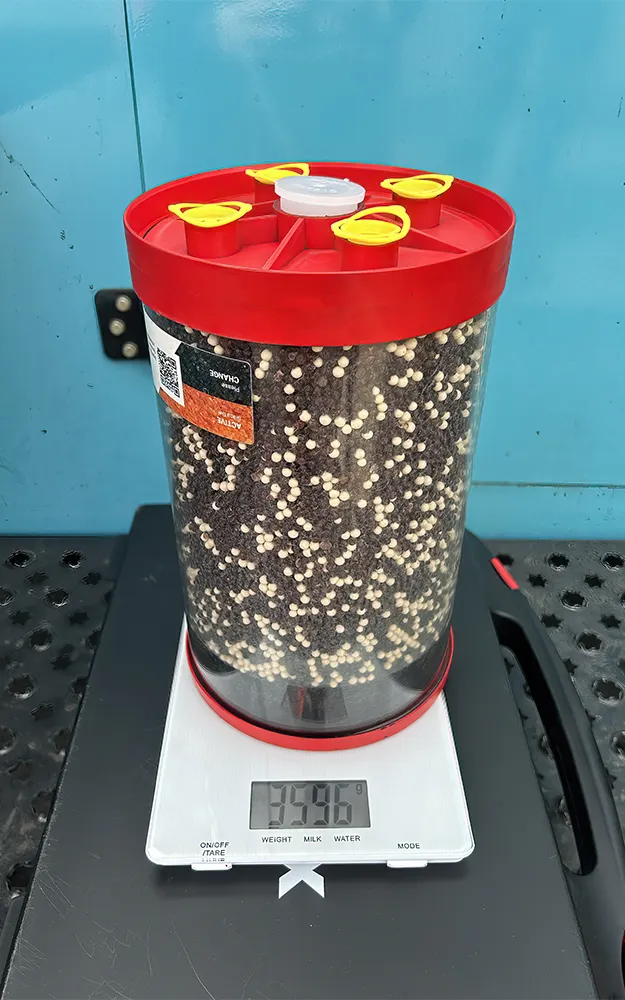
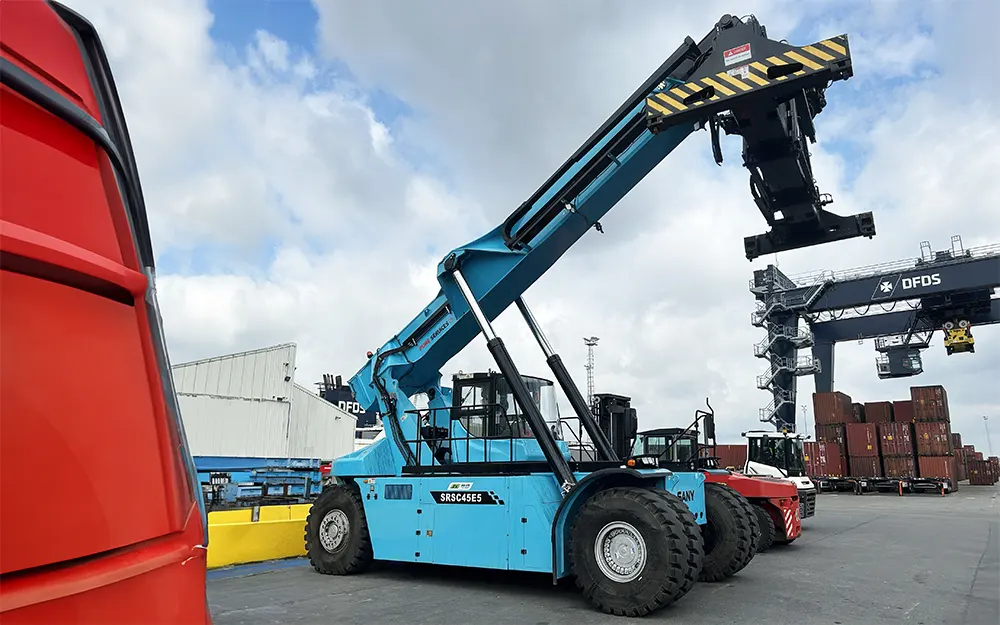
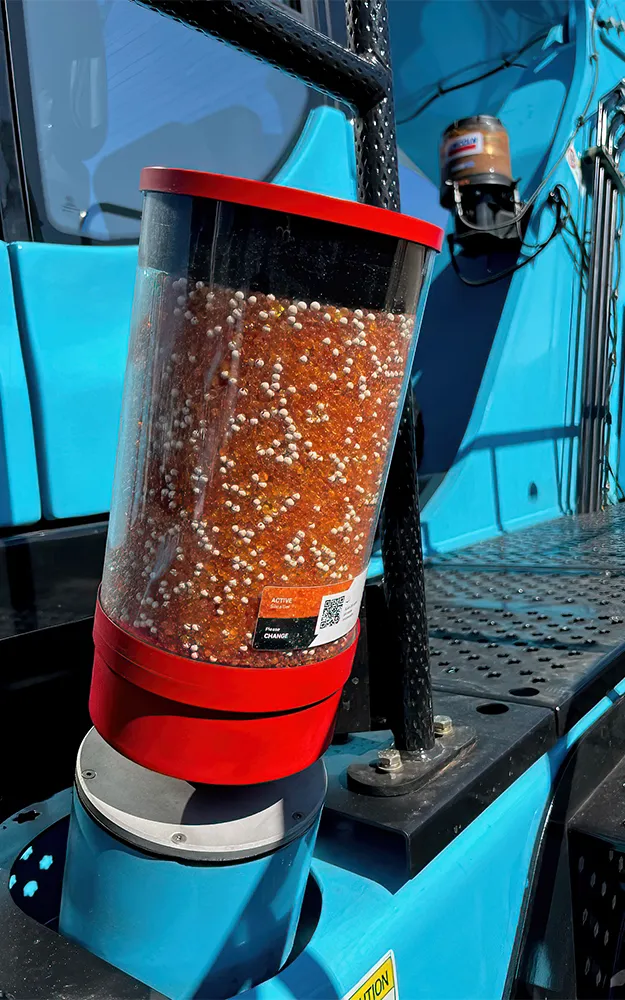
Why adsorber filter technology pays off
The test results confirm that the use of adsorber filters in bypass filtration is a sustainable and economical solution. The oil quality remains consistently high, while the maintenance intervals are extended. Protection against oil vapours increases the service life of the filter and disposal costs are reduced.
‘The test results confirm our experience: efficient filtration is essential to effectively remove moisture and dirt particles from the hydraulic oil and reduce operating costs. The adsorber filter including bypass filtration shows that modern filter technology makes a real difference.’ - Jörg Kaineder, Product Manager Filtration at HANSA‑FLEX.
Focus on sustainability: less oil consumption, lower CO₂ emission
Optimised filtration not only reduces costs but also has environmental benefits. Extending the intervals between oil changes reduces the amount of hydraulic oil consumed and disposed of. This significantly reduces the CO₂ footprint of the machines. For example, around 4.8 kg of CO₂ is avoided per litre of oil saved (including production and disposal). This helps to conserve valuable resources and improves the sustainability of industrial processes.
Conclusion: More efficiency, lower costs, better eco balance
The field test demonstrates impressively that the use of an adsorber filter with bypass filtration not only maintains the oil quality but actually improves it. Even under difficult climatic conditions, the hydraulic oil remains clean and ready for use, which enables longer maintenance intervals and higher machine availability. This leads to greater efficiency, lower operating costs and an improved environmental footprint.
The implementation of this filtration technology therefore represents an economical and sustainable investment for operators of hydraulic systems.

 Mexico
Mexico

